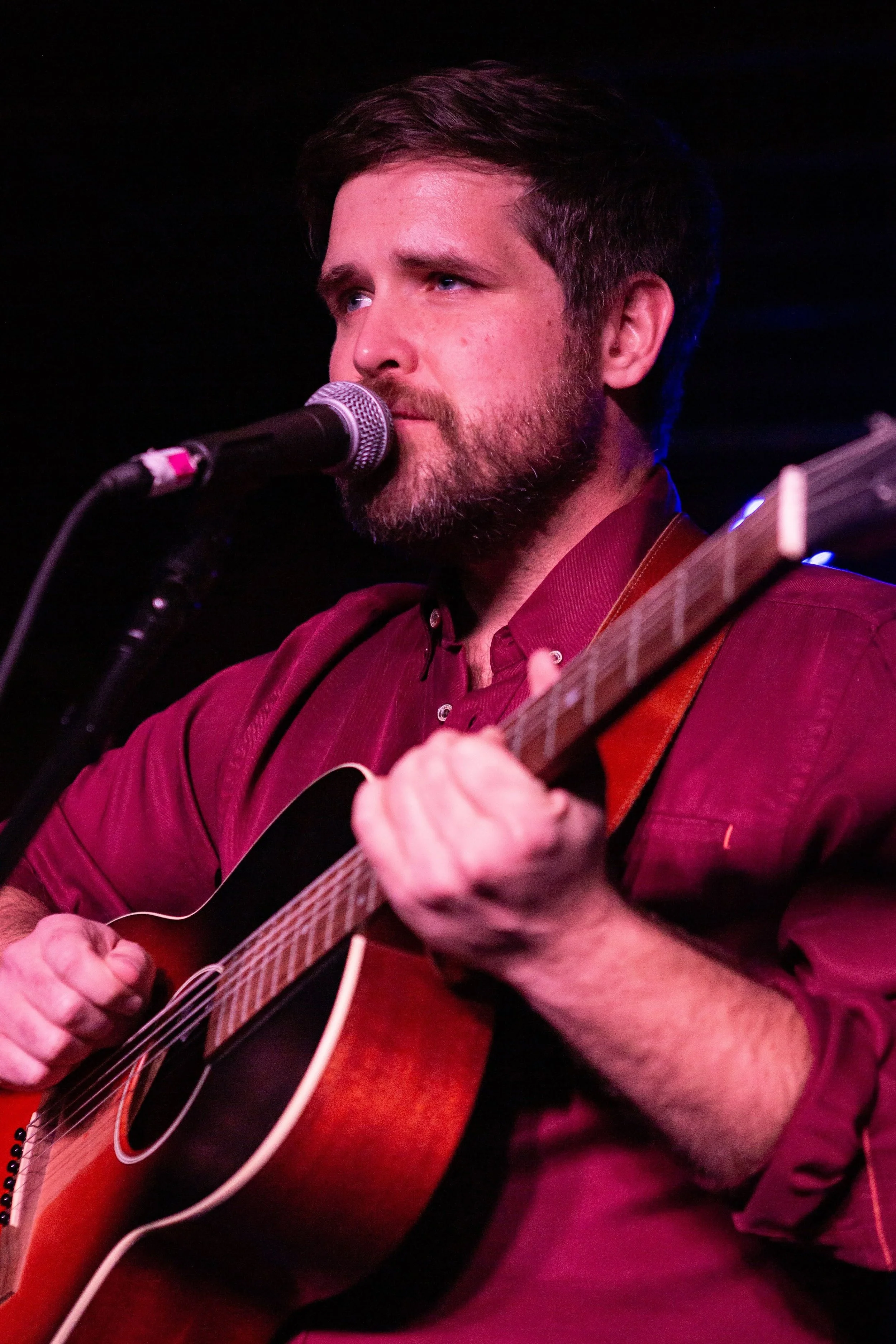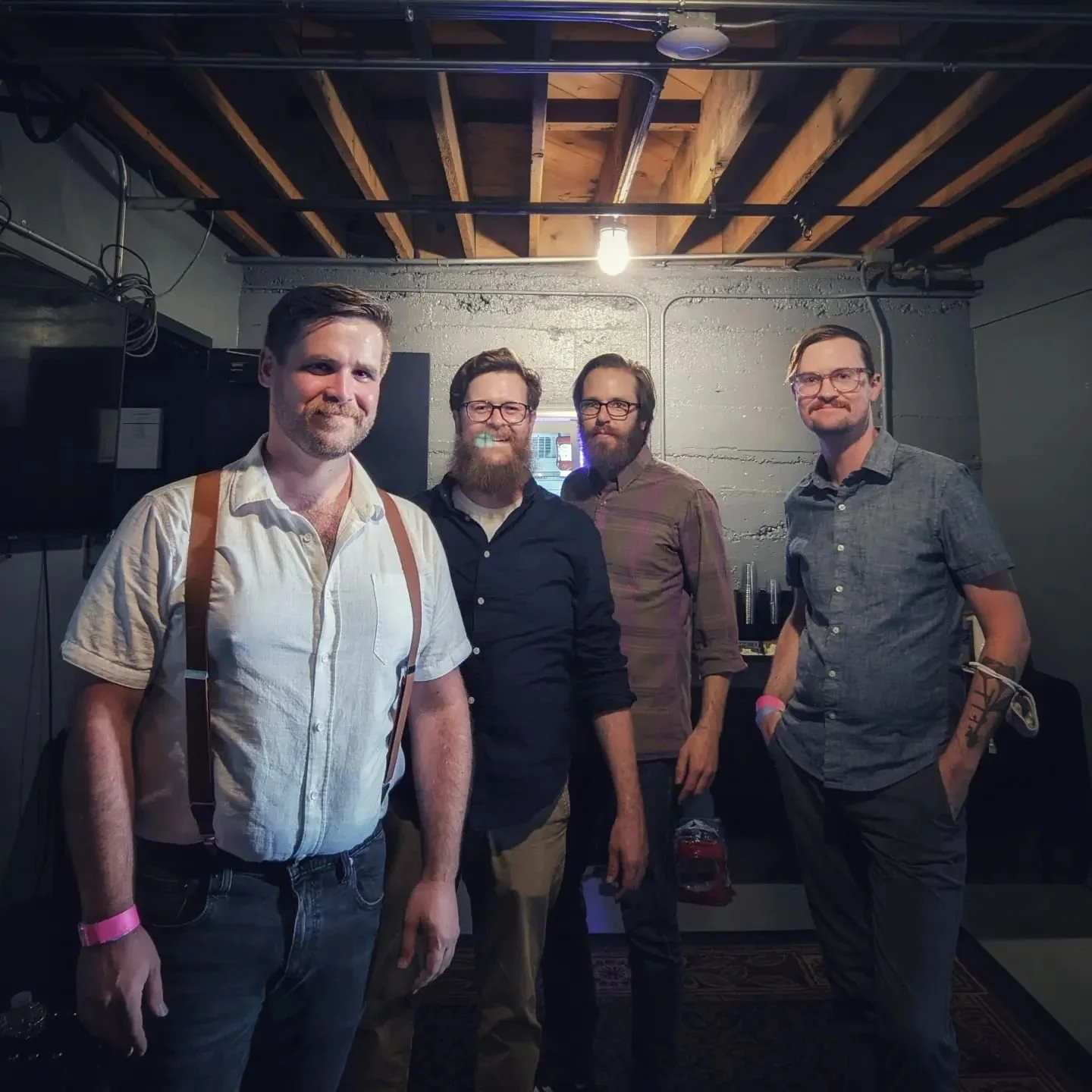.gay Music Monday Feature: An Interview with Out Artist Jesse Blake Rundle
Out artist Jesse Blake Rundle has seen a lot of big change over the last several years. He left the church, came out of the closet, and has found joy in sobriety and life on the other side.
Jesse’s new album, Next Town’s Trees, explores all of this big change, and expertly harnesses the beauty of truly knowing and loving oneself in the midst of it all. Next Town’s Trees was recorded at Mixed Metaphor Recording in Boise, Idaho with engineer Nate Agenbroad. This is the follow-up to his debut album, Radishes and Flowers, which was inspired by the poetry of Wallace Stevens and released in 2020.
Jesse was raised in Manhattan, KS, studied at St. John’s College in Annapolis, MD, and is now based in Boise, ID where he runs Mixed Metaphor Recording.
This week we had the chance to catch up with Jesse and chat about the new album and more! Read our interview below and pre-order your copy of Next Town’s Trees at:
www.JesseBlakeRundle.gay
The first song, Fire, from your new record, Next Town’s Trees, has just been released. Tell us about it.
When I was pretty young, like 5 or 6, some of our family friends lost their house in a fire. It really made me think about what it’d be like to lose everything. I wrote Fire while thinking about that feeling of wanting to get everything back that’s been lost. And it also became a metaphor for my own life as I’ve gone through a lot of change in the last few years and left a lot of things behind.
I used to really want to get back the innocence of youth and some idealistic image I had of myself, my friendships, and my family. But that’s just not how things work. So for me Fire is trying to capture that feeling of wanting it all back, but it’s just the opening song of the album. Because my own story of coming out, leaving the church, getting sober, etc. progresses from that starting point.
What are you most excited about with this new album?
I love the way the production turned out on this album. It’s the first time I felt like I had the tools and skills to bring my songs to life the way I wanted to. Ira Glass has a quote I love about how your own work can be disappointing because your skill level doesn’t match your taste level. With these songs, I finally had the skills and tools to bring these ideas to life. And that included an incredible team of collaborators on the project - engineering, session players, mixing, mastering, album art, etc. All those people came together to bring the project to life.
What inspired you to start playing and creating music?
Music has always been a part of my life. My whole family had a little band when I was growing up and we sang in churches all around Kansas. I really learned the joy of music from my mother who was an exceptional pianist.
I wrote a lot of instrumental music on the piano and guitar throughout the years, and released an album of ambient experimental music in 2006. When I turned 30, I decided to take my love of poetry and music and join them together to start songwriting. I’m not sure exactly why, it just happened.
What do you like most about writing and producing music?
I really love the people and community that it has connected me to. Artists are the best - they are quirky, curious, passionate, and all totally unique. I've made so many friends in the process of writing songs, playing open mics, gigging, going to concerts, etc. We’ve got a great community of songwriters and bands here in Boise and I love hearing what everyone is making.
How would you describe the music that you typically create?
It’s folk-ish music with a lot of textures and layers. I think the main thing that makes it folk-ish is the acoustic guitar and the fact that it’s not really music you’d dance to. Maybe call it Sunday morning music.
Can you talk about your experience working in the studio?
Production for me is all about embodying the meaning of the song in the musical arrangement. I love the variety of textures and the ability to intricately layer parts and create new moods. And engineering is a huge part of that. The same guitar part can be engineered in so many different ways with different emotional character. There’s a lot of trial and error in the studio with mic techniques, instrument choice, performance approach, etc. that keep going until the right idea appears. The studio is such a creative and free space and I really love the days I get to spend making music in that space.
When were the songs written for this album?
I wrote these songs in 2020/2021. A lot of them came to life during a songwriting class I took with Lizzy Ellison who is one of my favorite musicians (Radiation City/Cardioid). We met for about several months during pandemic and it became a lifeline for me both personally and musically. I was processing a lot of big emotions at that time so I had a lot to write about. I don’t think I would have ever had the confidence to write some of these songs without that group. Those people are dear friends forever now.
In the announcement for your new album, you speak about coming out. Why do you think it’s important to be out and proud in the music industry?
I wish that my younger self had seen more examples of what it can mean to be queer. I didn’t relate much to the experience of a lot of stereotyped queer representation in the media. It turns out, there's as much variety in personalities and lifestyles in the queer community as there are in the straight community. So I think it's important to me to be out just because it's a fact about me that I don’t want to hide. And maybe my story will help somebody else better understand themselves, or someone else in their life.
As an LGBTQ+ artist, what do you want to convey with your music?
I like to think that I’m just an artist that happens to be queer. And as an artist, I want to create beautiful things. I feel like just being myself and making art that’s free is really all I need to do.
If you could give one message to people who might be experiencing religious trauma and are struggling to come out, what would it be?
This is a tough one and everyone's story is so different. What I feared the most before coming out and leaving the church was that I would lose the love and friendship that I had in my community. The thing I never could have imagined was that when I started acting as myself, being free, and not hiding, I was able to create deep relationships. So many of my friendships grew closer after coming out. It was definitely scary, but I want to try to live courageously rather than be limited by fear.
Where can people see you perform live?
We’ll be playing at Treefort Music Fest here in Boise in March. And we're planning a small tour in 2023 in the Pacific Northwest. Later in the year, I’m planning to book some shows back home in Kansas and the surrounding midwest.
Anything else you would like our audience to know about your music and this new release?
I just hope that you find something in the songs that’s meaningful to you. I hope they take you into a space that's a bit of an escape from the daily barrage. And if you do find something, I'd love it if you share it with someone else that you think would appreciate it.
Listen to Jesse Blake Rundle’s “Fire” on our YouTube playlist, and don't forget to subscribe to our #DotGayMusicMonday playlist on Spotify.
Join Jesse and thousands of musicians, organizations, and brands who have already registered their .gay domain names. Get yours FREE by clicking HERE.





